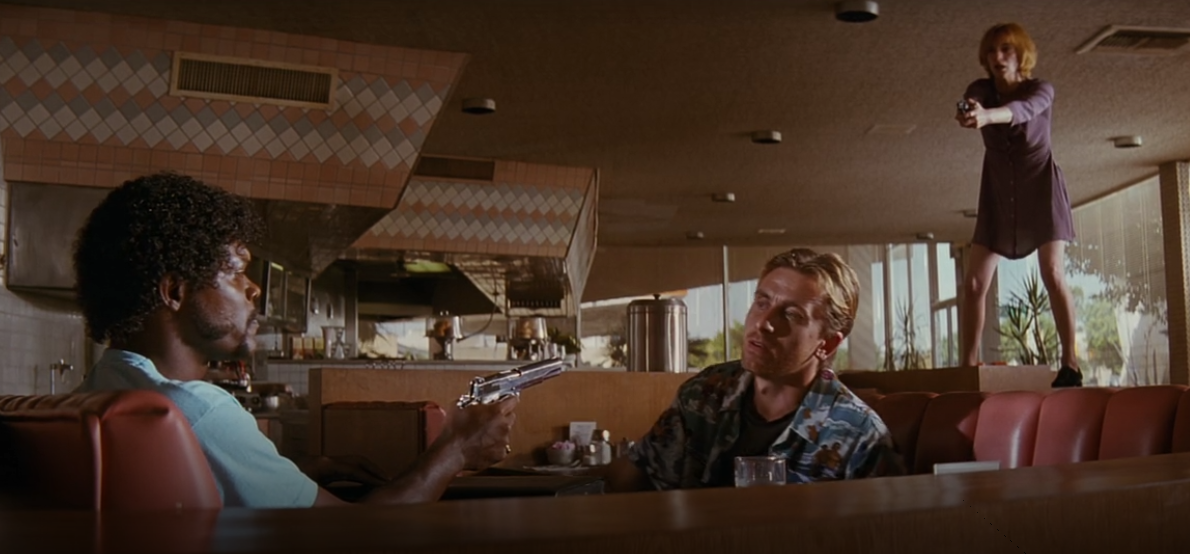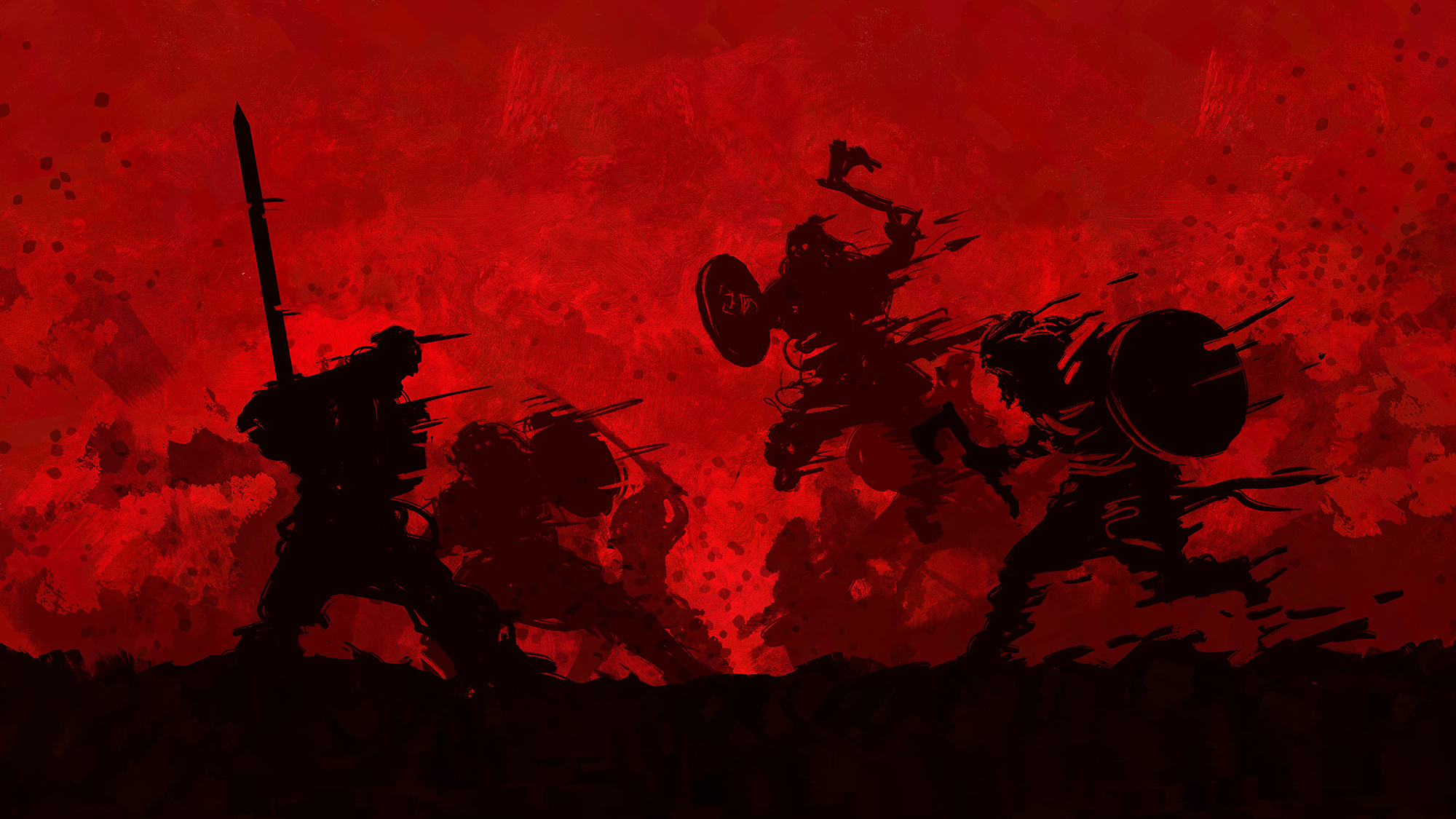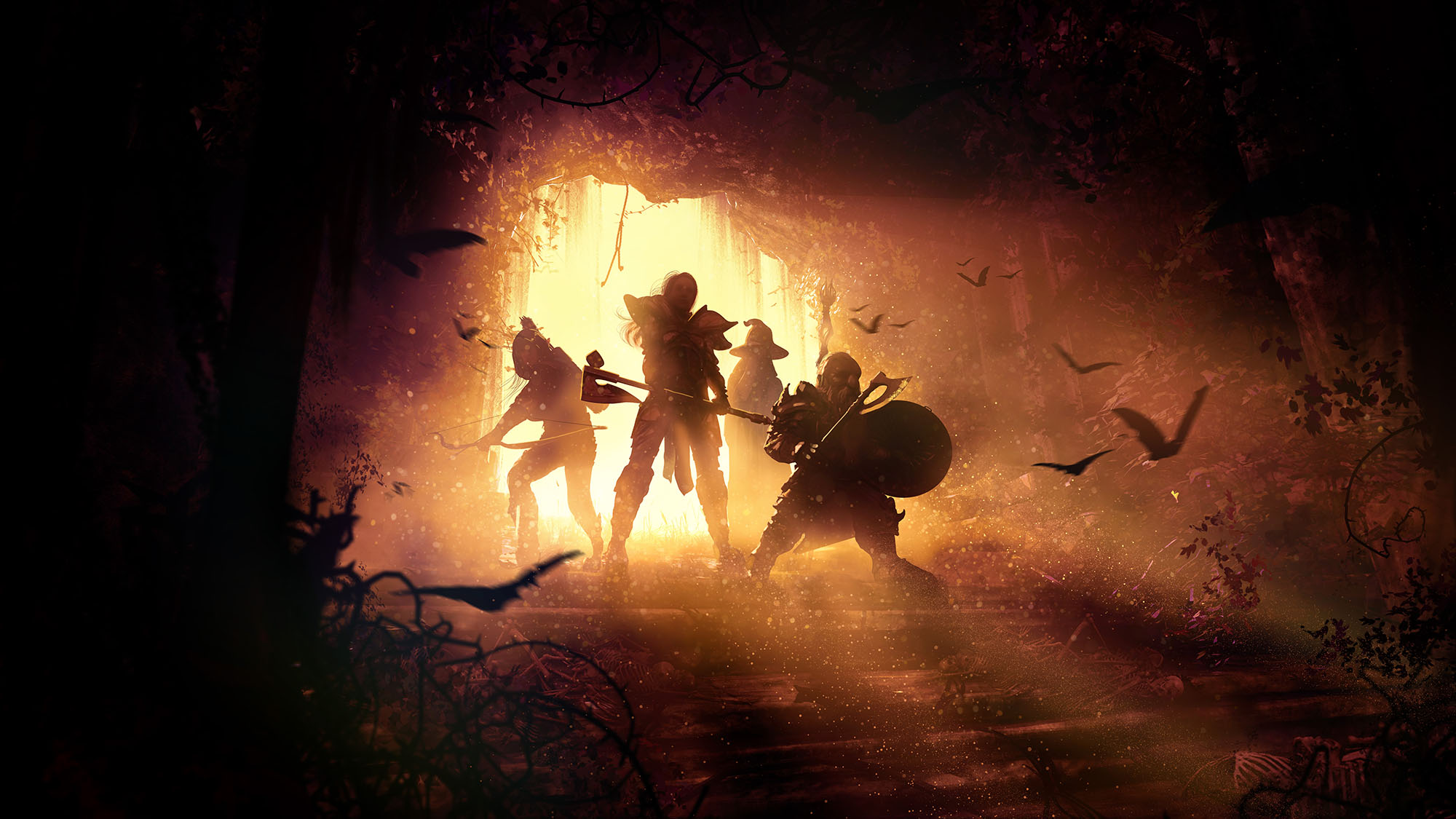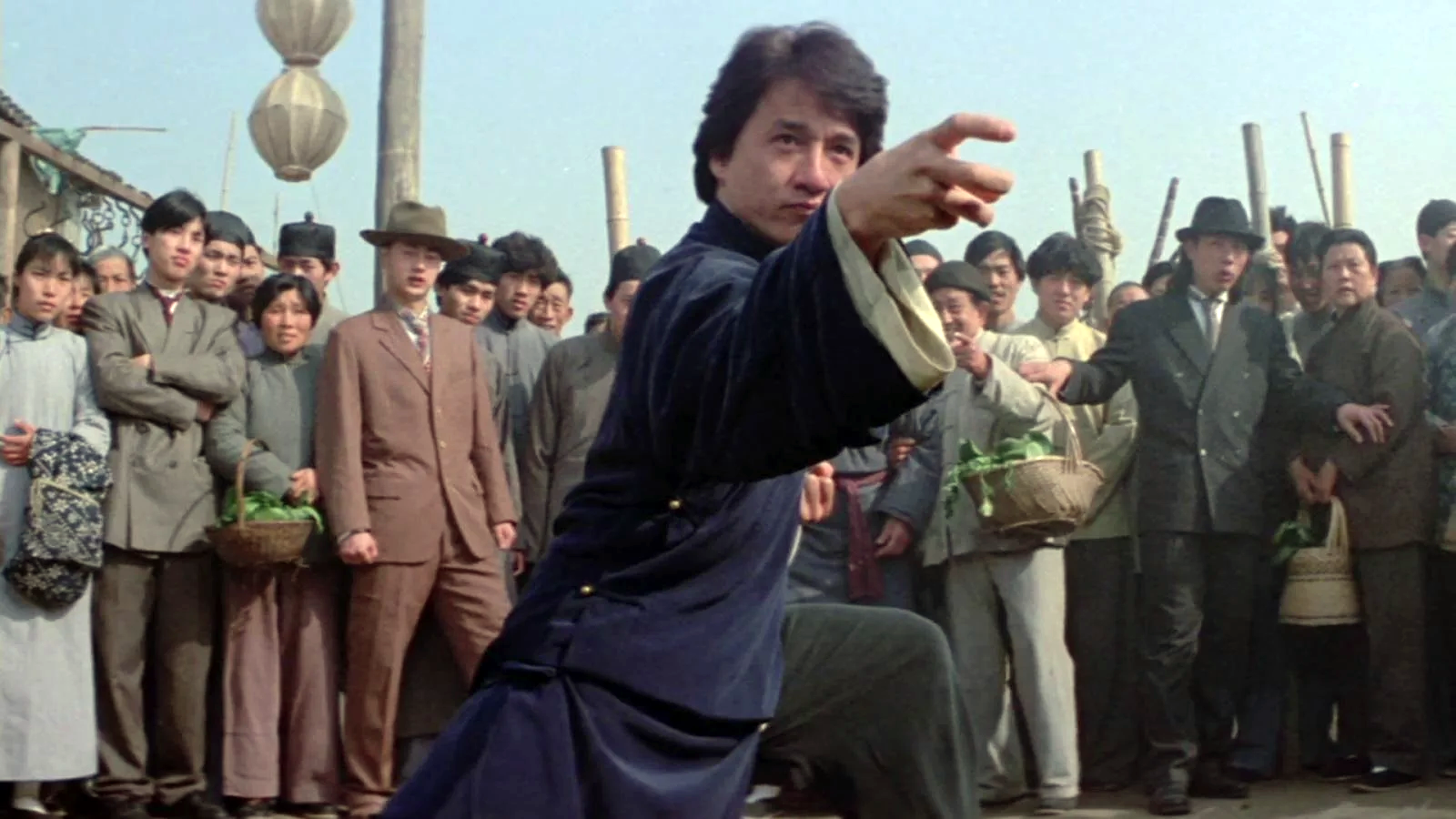Most RPGs have a specialized combat system, and most of those have a formal method of transitioning into the combat system. This usually means triggering some form of initiative system:
- In D&D 5th Edition, everyone makes an initiative check that determines the sequence in which they take turns declaring and resolving their actions.
- In older editions of D&D, side-based initiative determines whether the PCs go before or after the bad guys. (And, during their side’s initiative, the PCs and bad guys can take their turns in any order they want.)
- Infinity and other 2d20 Systems always have the PCs go first (in an order of their choosing), but the GM can spend Heat to have an NPC jump their initiative and take their turn before the PCs’ finish resolving their actions.
- Feng Shui features an initiative check which places each combatant on the shot clock. The clock is then counted down, with characters taking action each time their shot is reached. The action taken reduces their position by a specific number of shots, determining a new position on the shot clock where they’ll take their next action.
- Games like Technoir and Apocalypse World, on the other hand, don’t have a system for determining character order. But when a confrontation occurs (to use a term from Technoir), we enter a formal scene in which a character can’t take a second action until all other characters in the scene have taken an action.
And so forth. Regardless of the particular details, the simple “trigger initiative, start combat” procedure tends to very quickly run into a conundrum during actual play: What about an ambush?
Whether it’s the PCs wanting to ambush some bad guys or the GM wanting to have the bad guys ambush the PCs, this is both a pretty basic strategic consideration and a very common dramatic trope, so it’ll usually pop up pretty quick in the combat-drenched pulp adventures of a typical RPG campaign.
As a result, it’s pretty common for RPGs to also feature a system for surprise, which will determine (a) whether or not a group has achieved surprise and (b) what effect that surprise has.
Once again, there can be a lot of variation in the specific mechanics here, but a pretty typical combination is:
- Making a surprise check (e.g., an opposed Hiding vs. Spot Hidden check).
- Surprised characters being unable to take action during the first round and/or suffering a penalty to their actions or defense during the first round.
Depending on the system (and sometimes circumstance), surprise might be determined for either the individual or the side, but regardless, these two systems – initiative and surprise – are where most RPGs stop.
And, therefore, also where most GMs stop.
STANDOFFS
But it’s not where we’re going to stop.
Let’s consider the classic standoff from cinema: Everyone has drawn their guns. Everyone has their gun pointed at someone else. But no one’s pulling the trigger yet. Tension hangs thick in the air. Maybe there’s a hostage. Maybe one of them is trying to convince the other to join their side.
And then somebody decides enough is enough and they pull the trigger.
Chaos erupts.
But how should we resolve this in the game?
A couple bad solutions that I recommend you avoid:
- “Everybody can see everybody else, so no one is surprised. Therefore we just roll initiative normally.” …and somehow the guy who literally took the initiative by firing first ends up going last.
- “The guy who shot first took initiative, so we should ignore the mechanics and he just makes an attack roll.” Is that fair, though? Everyone was literally watching everybody else with a hair trigger.
The truth is that we already have the structure for resolving this action, because the person breaking the standoff trying to get the drop on everyone else: By taking the first shot they are trying to surprise them.
Therefore, we can use the surprise, then initiative structure that our chosen RPG has probably already given us. The only difference is the nature of the surprise: The shot-taker has already been seen by their opponents; they aren’t trying to physically sneak past them, but rather to surprise them in a different way, so we’ll probably want to use a different skill or ability or when making the surprise check.
In D&D 5th Edition, for example, I’d recommend using Insight as the key detection skill (since you’re checking to see if they realize the shot-taker is about to pull the trigger), probably opposed by the shot-taker’s attack proficiency.
Similarly, in Call of Cthulhu, you might use a Psychology or Spot Hidden roll vs. the shot-taker’s weapon skill.
If you wanted to flesh this out a bit, you could also do stuff like:
- Encourage characters to get into standoff situations by giving characters who DON’T have a weapon drawn during a standoff disadvantage on their initiative check if hostilities break out.
- If one character has another character at weapon-point, the unarmed character can attempt to draw their weapon by making a Stealth or weapons-skill check. On a failure, the character who has them at weapon-point can initiate combat while automatically gaining surprise. On a success, they now both have their weapons drawn and the standoff continues.
- In a standoff with multiple characters, you must indicate which opponent you’re training your weapon on. You are at disadvantage for noticing anyone else trying to take the first shot. (This encourages the “swapping your gun from target to target” thing you see in the movies.)
But the core point is the simple shift in the known action resolution structure that allows us to accommodate a completely different situation.
Extra Tip: A common complaint about standoffs in D&D is that, unlike a gunshot in real life, a single attack usually doesn’t carry lethal implications. This is true, but is mostly a question of genre. There are films where a standoff has lethal implications, but also plenty of action films and superhero comics where no one in the audience thinks the direct outcome of “guns bared” will be instant death. (And then one step further to the point where the characters are aware themselves that no fight is likely to end in a single shot/blow.) Depending on edition and level, D&D tends to slide along this scale. And that’s OK.
THE LONG KNIVES
We can find another variant by considering a scene in which the PCs are engaged in tense negotiations… but the negotiations are a trap! In the middle of the scene, the NPCs suddenly draw their weapons and launch a surprise attack!
(Or vice versa. PCs can be a wily and untrustworthy bunch.)
Once again, everyone in the scene is aware of everyone else in the scene. They may even be aware that the other side is bearing arms. But they’re not necessarily aware of the imminent threat.
What I’d recommend here would be an Insight vs. Deception check.
If hidden weapons are involved, we could easily prelude this resolution with Spot Hidden vs. Conceal checks to notice that our scene partners are unexpectedly armed. (Perhaps allowing us to take preventative action and/or gaining advantage on our Insight checks.)
By altering the scene a little bit, we can also consider a situation in which we might use multiple action resolution structures simultaneously: For example, if the NPCs have agents sneaking into position on the shadowy balcony above the negotiations so that, when the moment to attack comes, they will draw their hidden weapons at the same time the archers attack from above, then we might test both Insight vs. Deception (against the negotiators) and Perception vs. Stealth (against the archers) to determine surprise.
DUEL
Yet another variation might be the classic duel: Two gunfighters facing off from opposite ends of a dusty road. A pair of fencers formally squaring off. Two aristocrats firing at ten paces.
Surprise, obviously, is not a factor here, so we can discard that structure.
But what about initiative?
We certainly could use a generic initiative check (e.g., opposed Dexterity checks), but is that the best fit for this specific situation?
For example, might it not make more sense for the gunfighters to make a Shooting vs. Shooting check to determine who gets to take the first shot (i.e., wins initiative)?
We could even use this variant in systems that don’t typically use initiative checks. For example, I mentioned that in Infinity the PCs always go first, although the GM can spend a point of Heat to seize initiative. That might not be satisfying in the case of a duel (since it largely boils down to GM fiat), but there’s absolutely no reason we couldn’t use a face-to-face Ballistics test for this.
CONCLUDING THOUGHTS
The central GM tip here is the alternative structures for resolving:
- Standoffs
- Long Knives
- Duels
But there’s also a deeper truth to be explored here in the universal nature of this advice: That the tip isn’t the specific mechanics, but rather the structures for resolving these actions. These are more universal techniques and skills that allow you to apply your skills as a GM across many different systems.
Not every technique will be useful or applicable to every system, of course. But the reverse is also true: Every system gives you an opportunity to learn new mechanics, and then look for the opportunities to vary and leverage these mechanisms to accomplish even more. (Including, often, more in completely different games.)
Once you start thinking in these terms, you can take it one step further by creating a multitude of sub-variants that reflect the specific actions and intentions of the PCs. For example, I suggested that we could use Insight vs. weapons proficiency to determine surprise in a standoff. But:
- “I’m going to take my finger off the trigger and start putting my gun down, but as soon as they relax, I’ll take the shot!” That could be Insight vs. Deception instead.
- “I’m going to create a distraction so that Sasha can take the shot.” That could be Perception vs. weapons proficiency.
- “While everyone’s focused on the gun I have pointed at James, I’m going to pull my hidden pistol and shoot Jason!” Perception vs. Sleight of Hand.
This flexibility within the structure encourages creativity and specificity from the players as they engage with the game world; it makes the mechanics more accurately reflect the game state; and it creates fun variations in how different scenarios play out.
Are there other ways that combat could start? What ruling would you make? How would you resolve it?
FURTHER READING
Random GM Tip: Collecting Initiative
GM Don’t List: Not Writing Down Initiative
Miss-Initiative


















